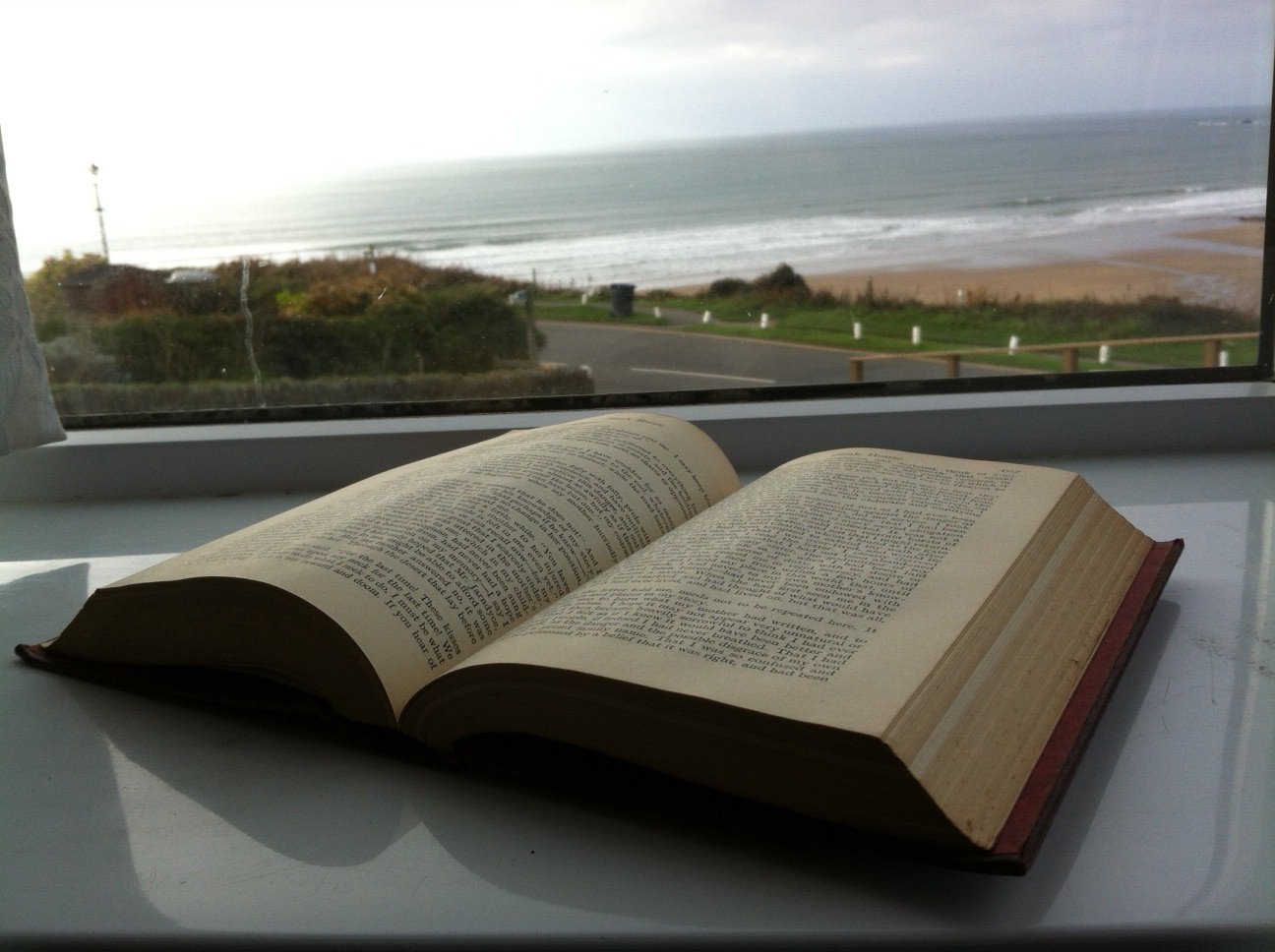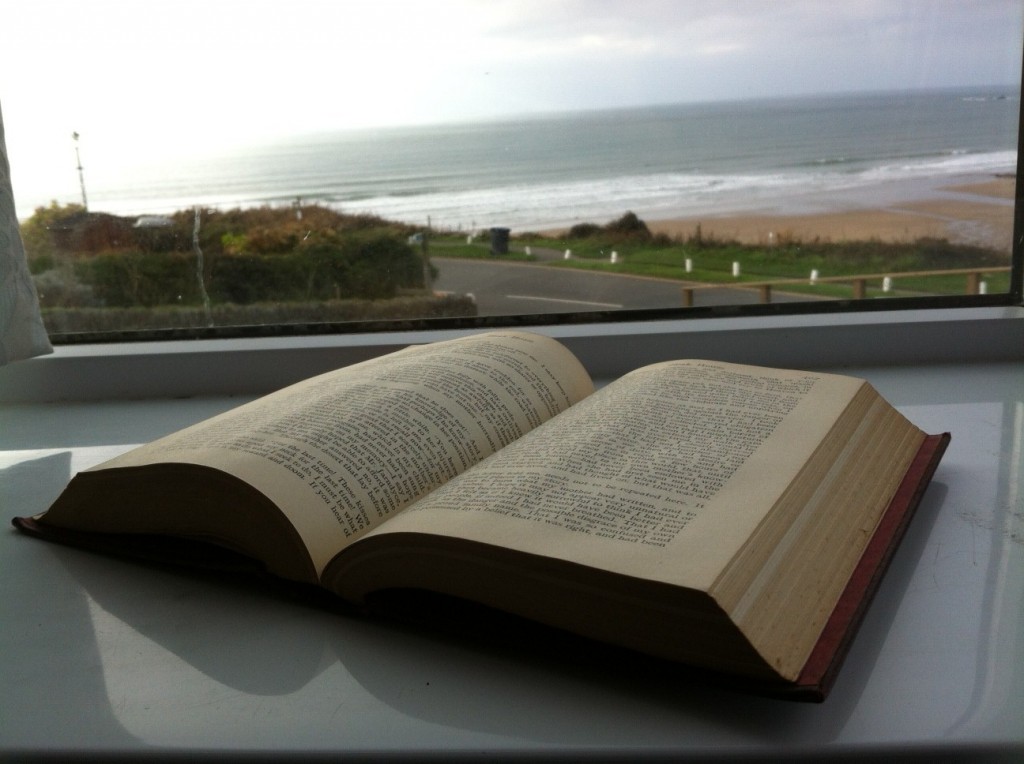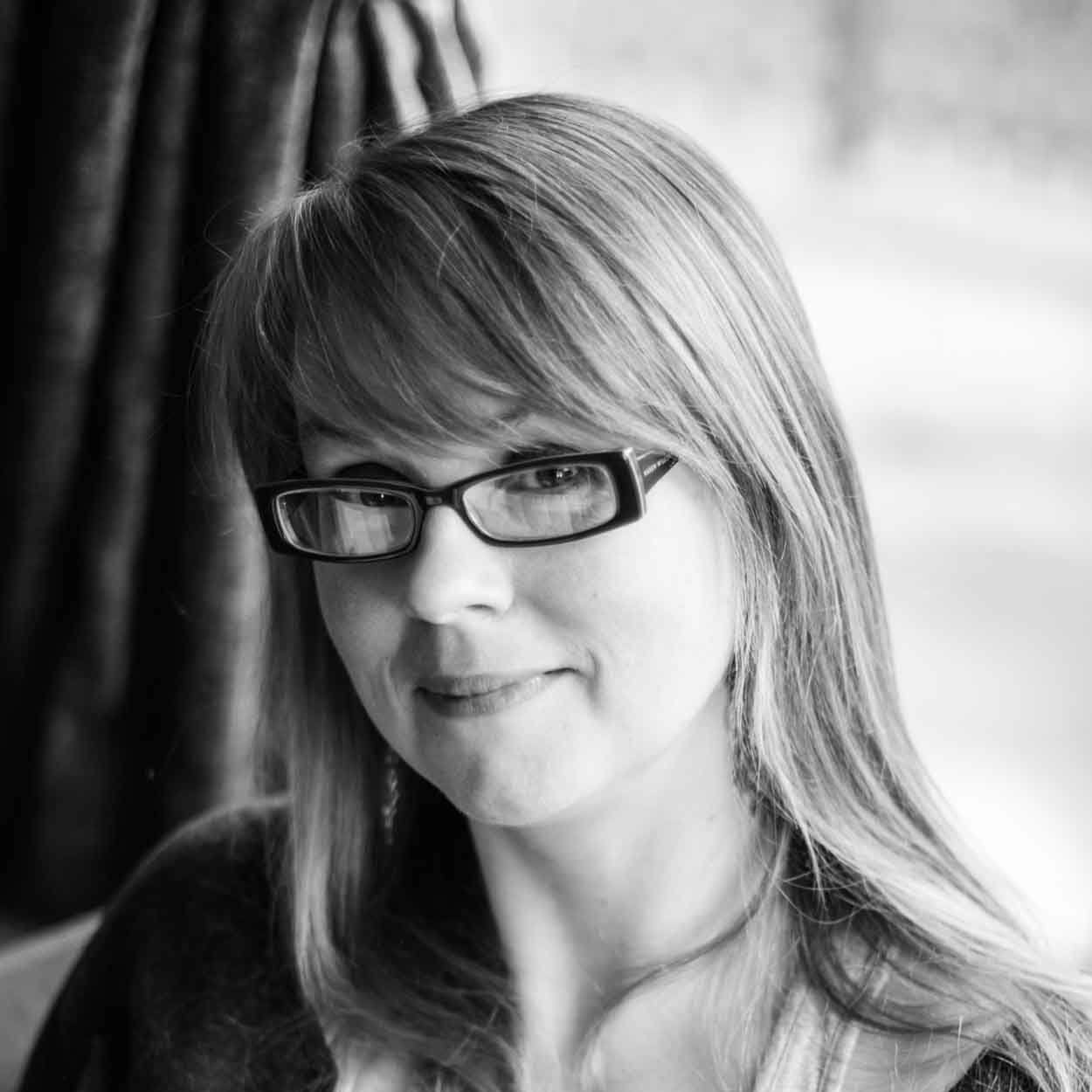“What an astonishing thing a book is. It's a flat object made from a tree with flexible parts on which are imprinted lots of funny dark squiggles.
But one glance at it and you're inside the mind of another person, maybe somebody dead for thousands of years. Across the millennia, an author is speaking clearly and silently inside your head, directly to you.
Writing is perhaps the greatest of human inventions, binding together people who never knew each other, citizens of distant epochs. Books break the shackles of time. A book is proof that humans are capable of working magic." Carl Sagan, Cosmos
Words are powerful. They can heal or harm. They can encourage or cripple. Silence – the absence of words – can speak as eloquently as words themselves.
I’ve always adored reading. As I mention on my About Me page, books provided an escape through my childhood and teenage. I share Carl Sagan’s sense of awe at their almost magical abilities. So imagine my absolute delight to discover that for writers (and possibly others too) reading counts towards your “10,000 Hours to Expert”.
Reading is my biggest treat. If I had to describe my perfect day then reading would definitely feature in it. One of my ultimate fantasies is being snowed in somewhere with only a wood-burner, food and my iPad full of iBooks and Kindle books waiting to be read.
I am a dangerous reader. When I’m reading a book – assuming it’s any good – I’m completely lost in it and can’t put it down until I’ve finished. That’s dangerous because I miss appointments, neglect my children and forget to cook dinner. I wouldn’t dare be like J.K. Rowling:
“I never need to find time to read. When people say to me, ‘Oh, yeah, I love reading. I would love to read, but I just don’t have time,’ I’m thinking, ‘How can you not have time?’ I read when I’m drying my hair. I read in the bath. I read when I’m sitting in the bathroom. Pretty much anywhere I can do the job one-handed, I read.” J.K. Rowling
Weeks before “Harry Potter and the Deathly Hallows” was released, I’d told my husband that he was in charge of the kids and cooking that day. I started to read as soon as the postman delivered it at 8.30am. I was done by 5.30pm (possibly having skimmed some of it!) and went online to discuss its brilliance with anyone who was there. No one was – I was one of the first people in the world to finish it and I was too stupid to realise until weeks later that I should have got on Amazon and left one of the first reviews!!
Reading isn’t just a bonus for good writing, it’s a known necessity.
“If you want to be a writer, you must do two things, above all others: read a lot and write a lot. There’s no way round these two things that I’m aware of, no shortcut.” Stephen King
It doesn’t actually matter – in terms of writing lessons at least, rather than personal enjoyment – if the book is good or not.
Good books teach you what good writing is. Even if you’re not consciously aware of what the author is doing, you’re absorbing structure, plotting, character development and vocabulary. It’s a powerful practical lesson, more effective than reading a “How To” book. For example, when I read “The Giver” by Lois Lowry recently, I was caught up in the detail of its world and became aware I needed to add more depth to mine in CAF.
Reading a good book can be slightly demoralising though. It’s easy to end up thinking “I could never write as well as that, I may as well give up.” But you have to push through those thoughts and focus instead on letting the book inspire you and make you up your game.
Bad books – or even good books that just don’t do it for you – can show you numerous pitfalls to avoid in your own work (if you can stick with them long enough). I wouldn’t dream of giving examples of any of those! But if you come across clunky writing, flowery unnecessary description, annoying turns of phrase or repetitive words then you make a mental note not to fall victim to the same offences in your writing.
This idea transcends to other spheres of creativity. You are filling your creative reservoirs if you’re an artist walking round an art gallery, a photographer browsing others’ photos online or a musician listening to music. This time is never wasted, even if you feel it’s just fun and a distraction your from your own creating. These pursuits enable your creativity to flow. You can’t create from a place of dryness or emptiness.
Holidays are one of the few times I feel safe to read a book. Our annual trip to Devon is a particularly good one. My children don’t want my attention because their grandparents are in the flat upstairs and their cousins are in the house next door. They have dogs to walk and waves to surf. My husband is out with them. Dinner is in the slow cooker. I am free to get completely and wholly lost in a book for a few hours.
And at the same time – excitingly – work towards a greater level of expertise in my writing!
Similar Posts:
- None Found



 Hi, I'm Mel (you figured that out already though, right?!) and this is where I chat about things that relate to and inspire my writing, as well as share some of it.
Hi, I'm Mel (you figured that out already though, right?!) and this is where I chat about things that relate to and inspire my writing, as well as share some of it.